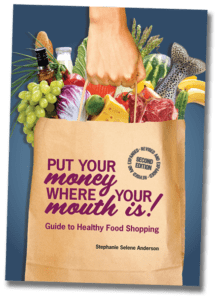It is an alluring idea to think that any modern advance that helps us live a more comfortable life has been thoroughly tested before being allowed into our homes. After all, we’d all like to believe that the products we rely on every day are ultimately helpful rather than harmful. Unfortunately, that’s not always the case.
As I recently wrote about, companies often share targeted information as gospel without disclosing all of the details to the general public. But as I repeatedly tell our boys, the truth has a way of rising to the surface. It can take some time, but lies are always revealed. Just recently, yet another story has come to light that bears this out, and it affects each of us.
CNN reports that chemicals in everything from plastic bottles to cosmetics have an impact on our health, and it ain’t good. The chemicals found in many modern products that make our lives more satisfying are holding back our health—in a big way.
CNN quotes research from the NYU Langone Medical Center revealing that the toxic buildup from a class of chemicals known as “endocrine-disruptors” costs the U.S. $340 billion annually in general bad health, medical expenses, and lost wages. It’s especially disturbing to note that the researchers find the biggest impact in the brain development of infants. Kind of a big deal, right?
This isn’t groundbreaking news at SRP and similar sources of information that have been revealing the truth about chemical exposure for years. However, it often takes reporting from the mainstream media before such news is heard by the masses. If this inspires the changes we need, so be it.
In the article, CNN cites the Toxic Substances Control Act, “the major law that reviews chemicals for their safety and decides whether they should be allowed for use in the broad environment.” Unfortunately, for decades this law gave chemicals the benefit of the doubt, presuming they were innocent until proven guilty.
This oversight was finally addressed with a reboot known as the Frank R. Lautenberg Chemical Safety Act, which was signed into law this past summer. Like the previous act, it will regulate chemicals found in everyday products that use flame-retardant chemicals, such as furniture, as well as electronics and personal care products. But the reforms also address the limitations on EPA authority that prevented it from regulating asbestos and other toxic chemicals in the past. As SaferChemicals.org notes, “Taken together, these reforms should lead to chemical restrictions that are meaningful, not just to the general public, but especially to populations in heavily impacted communities and to pregnant women and children.”
You don’t have to wait for the regulators to make massive changes though. In fact, many of these government regulatory agencies have been part of the problem by allowing so many unnecessary poisons to enter our food supply in the first place. And for allowing politics to sway laws so that most legislation ends up growing the government—when it should be removing obstacles that get in the way of growing healthy human beings.
You’ll find information on all the things we consume in Stephanie Selene Anderson’s newly revised and expanded Put Your Money Where Your Mouth Is! This guide to healthy shopping even discusses the chemicals in our cosmetics, household cleaners, and other personal and home care items. It’s an invaluable resource with a wide range of suggestions for natural products that will help you avoid chemical exposure.
You can also arm yourself with DIY products like the ones described in Little House in the Suburbs by Deanna Caswell and Daisy Siskin. Their simple recipes for everything from Bathroom Mold Killer to homemade laundry soap are easy to make and call for common, basic ingredients.
Don’t let modern advances hold back your health. Educate yourself on this self-health topic and be sure to share what you discover with others.
Photo from iStock/diego_cervo



